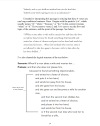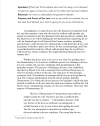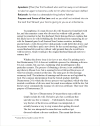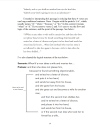hey, i have been studying the topic of marriage, divorce, and remarriage, and i am wondering if this sermon series is correct, and if it might be helpful to people here.



 www.youtube.com
www.youtube.com
i am still in talks with my friends and my pastor's father. Ron has purchased John Carrol's book on MDR, and will read it, and let me borrow it when he's done.
most recently, Ron doesn't see how "putting away" and "divorcing" are necessarily different, but I think that's an easy prove by just pointing to how the language of "putting away" is used elsewhere.
if yall have anything to add to make this more consistent, or corrections to issue, i'd love to hear it.



Marriage, Divorce, and Remarriage
Share your videos with friends, family, and the world
[COLOR=var(--text-link)]https://youtube.com/clip/UgkxXBdAlSNGZBuKxonwMIcHFbWwvvxkvXT6?si=l2Zny1iOg-8N-7ov[/COLOR]
i am still in talks with my friends and my pastor's father. Ron has purchased John Carrol's book on MDR, and will read it, and let me borrow it when he's done.
most recently, Ron doesn't see how "putting away" and "divorcing" are necessarily different, but I think that's an easy prove by just pointing to how the language of "putting away" is used elsewhere.
if yall have anything to add to make this more consistent, or corrections to issue, i'd love to hear it.





